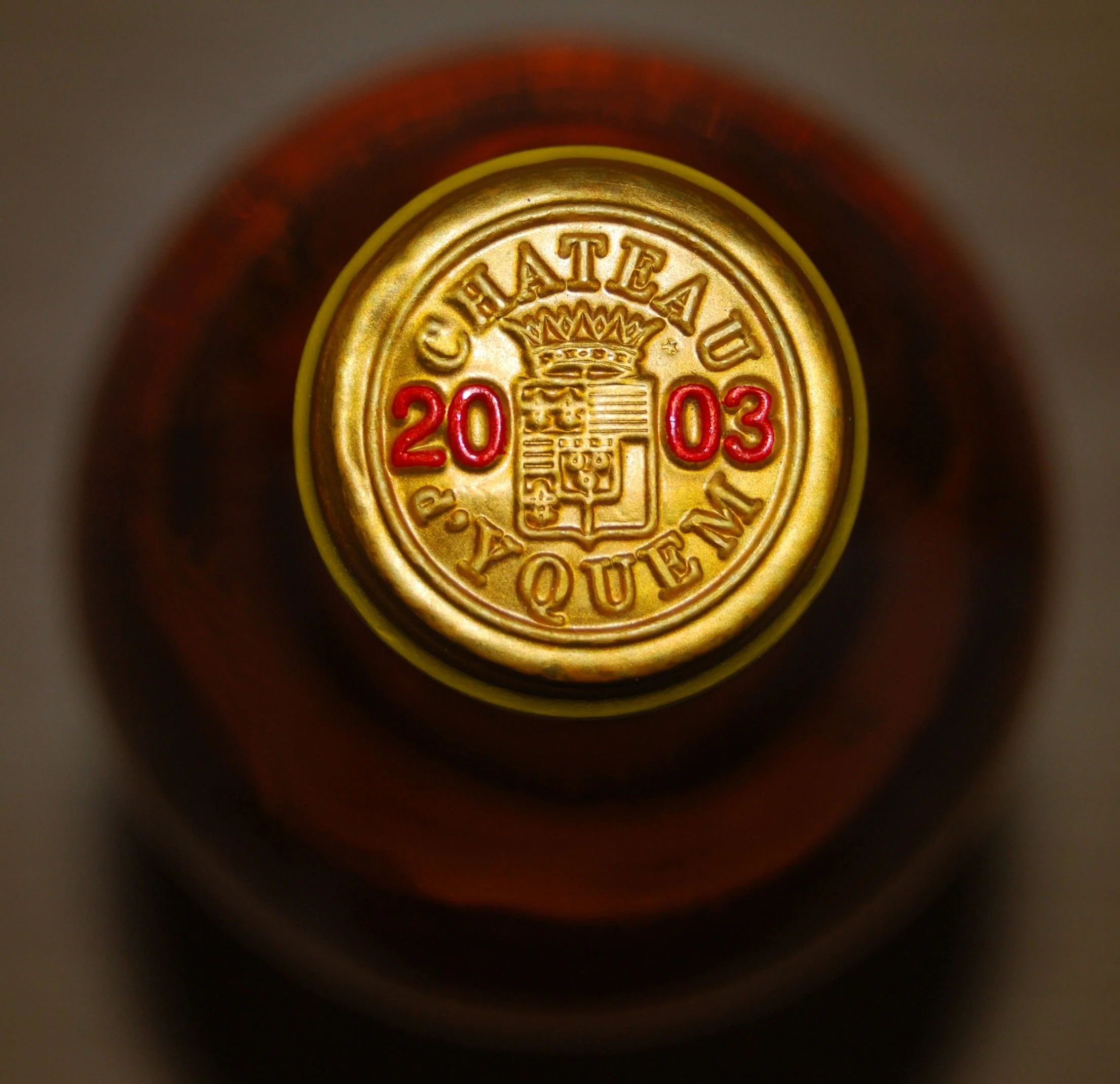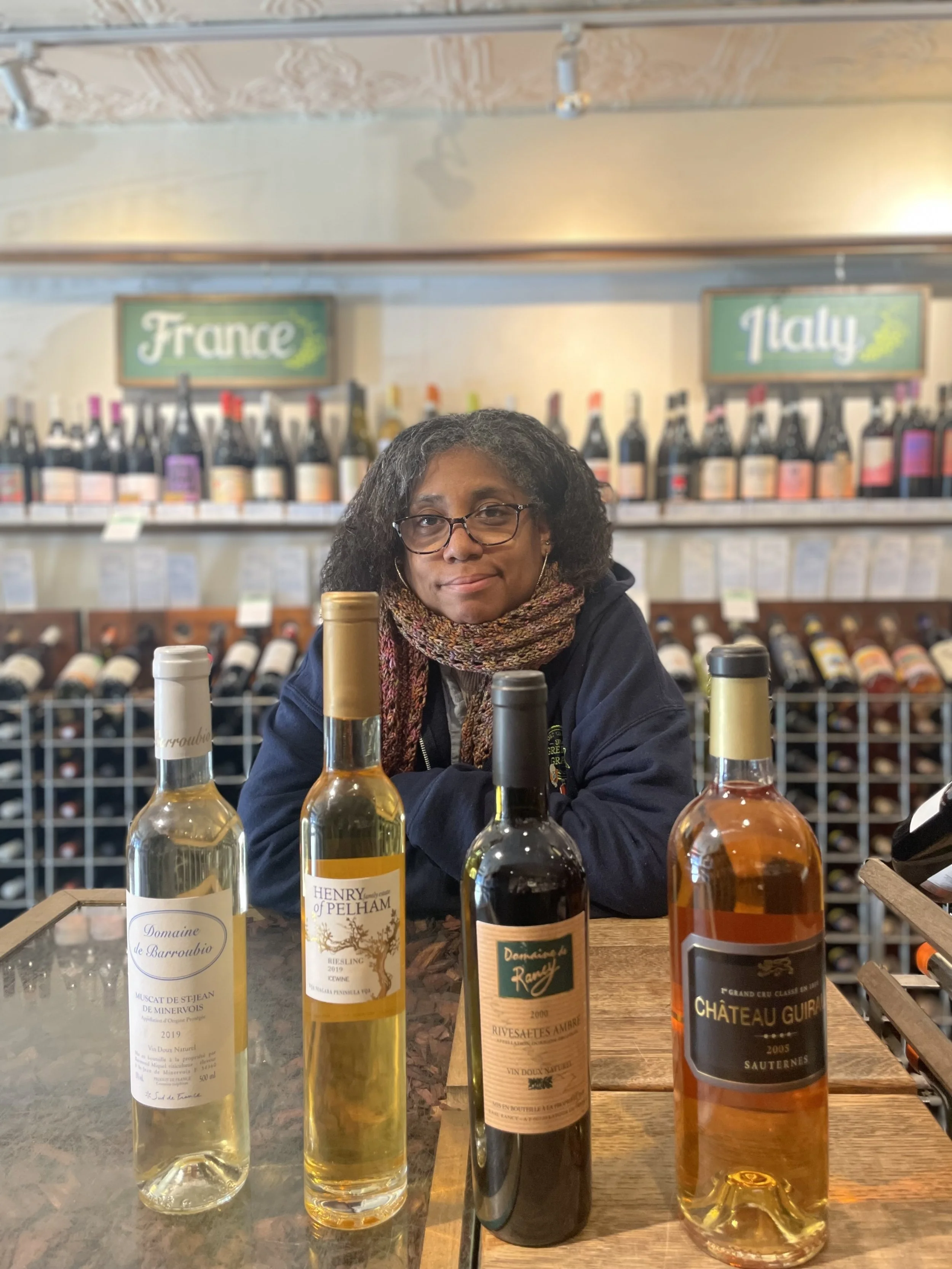Sweet Wine Part 1: Drink What You Want.
Sweet Wine Part 1: Drink What You Want.
Back then, like many new drinkers, I didn’t know that wine could have a “reputation.” In my early 20s, I was somehow more sure about lemon drops and Jagermeister. Wine was its own thing. Wine was something you had in church, people’s homes, or restaurants, if you were rich.
My second job out of college was writing and editing at a small newspaper service. My boss was like an elderly version of Peggy Olson from “Mad Men.” Every so often, after we put an issue to bed, she would summon our tiny team into her office for what she called “Fireside Chats,” during which she’d chain smoke slim cigarettes and dispense advice over bottles of cheap, sweet, bubbly wine. “No dead soldiers!” was her rule, meaning no one could leave the boss' office while a bottle was open. As a result, I showed up to work with a raging hangover once a month for nearly 2 years. Sweet wine became synonymous with sharp-eyed old ladies with a thing for F.D.R. references – and something I avoided for the next 15 years.
“Anything but sweet wine!”
Illustration by Lillian Schrag
“Back then, like many new drinkers, I didn’t know that wine could have a “reputation.” ”
I changed jobs a few times before I landed a position researching and writing about food for a culinary school. I was suddenly surrounded by chefs, sommeliers, foods and wines from every corner of the globe. Restaurants had become part of my life. I enrolled in the school’s wine program. One Christmas, a few colleagues and I decided to celebrate a few weeks early.
One of my classmates, a pastry chef who also worked at the school, made baked Alaska. Another nicked foie gras from the culinary student kitchens upstairs. Six of us pooled our money to buy a small bottle of Chateau d’Yquem, one the most prized wines in the world. We had just learned about d’Yquem, a sweet wine producer from the region of Sauternes whose prestige dates back hundreds of years. Thomas Jefferson was a fan, having imported barrels direct from the winery in the early 1800s.
The bottle, just 375ml, was outrageously expensive. Time seemed to slow as my friends poured the bright golden liquid into glasses. Would this wine live up to its hype? Would I like it?
We toasted our good health and tipped our drinks back. I was immediately seduced by aromas so decadent they felt like a sin. Honey, ripe pear, lychee, quince, ginger, a touch of clove. The wine didn’t so much coat my palate as enrobe it. It was smooth and soft, sweet, but somehow still savory, mouthwatering, mysterious. To call it magic would be an understatement of shameful proportions. It was epic. Biblical, even. This wine didn’t just change my opinion on sweet wine. It changed me.
Image by Ben Kerckx (Pixabay)
“This wine didn’t just change my opinion on sweet wine. It changed me. ”
Now a decade into my wine career, I remember my Chateau d’Yquem experience as the one that helped me to really understand what is so special about wine. I know now that the production of sweet wine dates back to ancient civilizations. It was the wine of kings and nobility, stolen as spoils of war, traded across empires for hundreds of years. Yet, at some point, ideas shifted. Sweet wine developed a bad reputation in the world of fine wine, as if it went out and got too drunk at some fancy cocktail party Saturday night and set all the hoity toity folks gossiping.
What happened? Well, it depends on who you ask. Not everyone looks down on sweet wine. In fact, sweeter wines are quite popular around the world. To demystify the misperceptions around sweet wines is what this series is all about.
When guests come into the shop where I work now looking for sweet wines, it usually goes one of three ways:
“I’m looking for a wine to go with pasta, but nothing too sweet.”
Or, “My [friend, mom, girlfriend] likes sweet wines. Not me though, ew,” accompanied by a nervous laugh.
Or, “I’m looking for something sweet, I know it probably sounds silly to you.”
“Not at all, drink what you want,” I say to that guest, offering the very first lesson I learned in wine school as reassurance. Scott Carney, Master Sommelier, said it with a shrug of the shoulders just minutes after my cohort took to our seats at the International Culinary Center. (The I.C.C. has since closed.)
I had been excited and terrified to study wine. I grew up in the housing projects of East New York, what the hell did I know — what could I know — about fine wine? The minute Carney spoke, I felt myself relax and breathe normally again. “The first rule of wine study,” he said. “Let people drink what they want. Your job, my job, is to make sure they have a good time.”
the author at work with delicious sweet wine
“My job is to make sure you have a good time,” I tell my customers today. I hear them sigh, see their shoulders drop with relief that I’m not judging them for their choices. Drinking sweet wine is okay. Sweet wine is as good as any other wine. Sweet wines are, in fact, delicious. Chateau d’Yquem, anyone?
Sweet wines can be made artisanally or mass-produced, carefully or cheaply, just like any other wine. After nearly 10 years in the wine business, I have some ideas about the ways people say “sweet wine,” and what they really mean.
Some folks think of sweet wines as syrupy, cloying, cheaply produced and cheaply packaged, in frosted glass with labels just a bit too shiny. It’s the stuff that poor, simple, unsophisticated people drink. When they say, “I don’t want anything sweet,” what they often mean is “I have taste. I’m better than them. I’m not like them.” Snobs who look down on sweet wines and those who drink them rob themselves of the magic of discovering something delightful.
“Snobs who look down on sweet wines and those who drink them rob themselves of the magic of discovering something delightful. ”
I welcome and encourage customers who like what they like, even if they are sometimes hesitant to ask for it. I do my best to help them find something wonderful to drink, no matter the sugar content. At their best, sweet wines can be as complex and nuanced as the people who enjoy them. To me, sweet wines are worthy of exploration and respect. After all, what is hospitality if everyone’s not welcome at the table?



